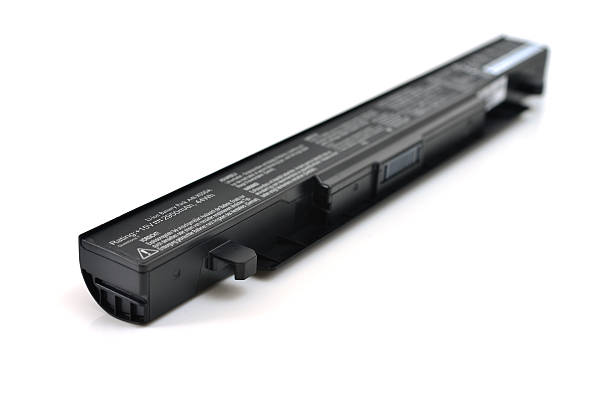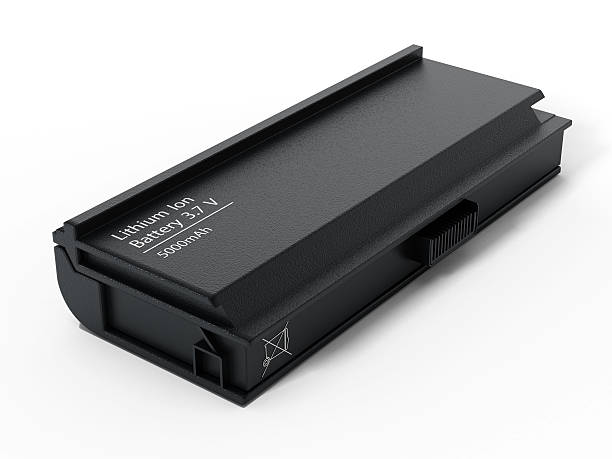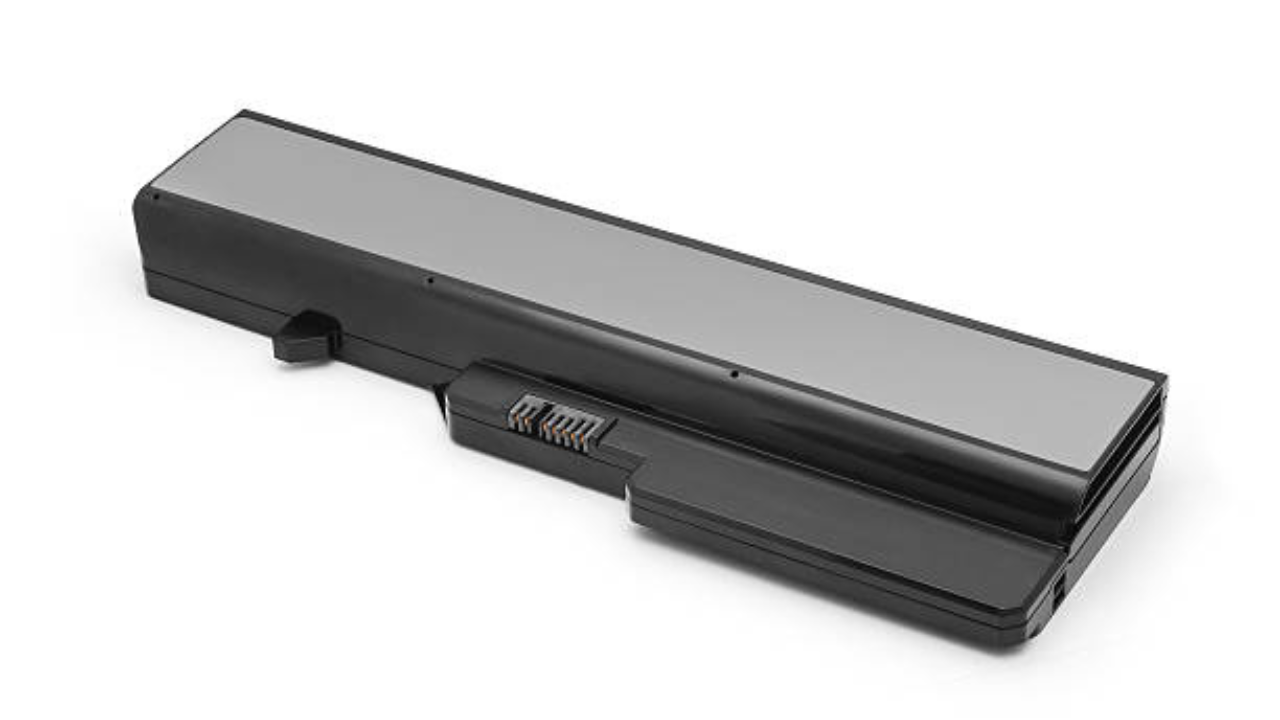Laptops typically use lithium batteries for power. These batteries offer efficient and reliable performance.
Now, more than ever, laptops have become an essential tool for work, education, and entertainment. But have you ever wondered what powers these portable devices have? The answer lies in the lithium batteries they use.
These batteries have become the laptop industry standard due to their high energy density, lightweight design, and longer lifespan compared to other battery types.
Understanding the role of lithium batteries in laptops can help you make informed decisions when choosing and maintaining your device. We will delve into the world of laptop batteries, explicitly focusing on lithium batteries, their benefits, and how they work. So, let’s dive in and discover the power behind laptops!
The Science Behind Laptop Batteries
Laptops typically use lithium-ion batteries, known for their high energy density and long life. These batteries operate on the principles of electrolyte movement and charge transfer. The lithium content facilitates quick charging and discharging, making them a popular choice for electronic devices.
Laptop batteries play a crucial role in powering our portable devices and ensuring they stay functional while on the go. But have you ever wondered what makes these batteries so efficient?
In this article, we will dive into the science behind laptop batteries and shed light on the composition of these power sources. We will also explore the function of lithium, the critical component of these batteries.
Composition Of Laptop Batteries
Laptop batteries are typically composed of different materials that work together to store and deliver power. One of the most common types of laptop batteries is the lithium-ion battery. These batteries consist of three main components: the positive electrode, the negative electrode, and the electrolyte.
The positive electrode, also known as the cathode, is typically made of a lithium compound such as lithium cobalt oxide or lithium iron phosphate. This compound is vital to the battery’s ability to store and release energy efficiently.
The negative electrode, or anode, is usually made of carbon, which enables the movement of lithium ions between the positive and negative electrodes during the charging and discharging process.
The electrolyte is the medium through which lithium ions are transported between the electrodes. It is typically a liquid or gel substance containing lithium salts that facilitate the movement of ions, ensuring a steady flow of electricity.
Function Of Lithium In Laptop Batteries
Lithium, a critical component of laptop batteries, is crucial to their overall function. It is an ideal material for batteries due to its unique properties. Lithium has a low atomic weight, which allows for a high energy-to-weight ratio, making it ideal for portable devices like laptops.
Lithium ions travel from the positive to the negative electrode when a laptop battery is charged through the electrolyte, storing energy. During discharging, the process reverses, with lithium ions moving from the negative electrode to the positive electrode, releasing stored energy to power the laptop.
Additionally, using lithium-ion batteries in laptops offers advantages such as longer lifespan, lower self-discharge rates, and higher energy densities than other battery technologies. These benefits make lithium-ion batteries the preferred choice for laptops, as they provide the power and reliability required for everyday use.

Evolution Of Laptop Battery Technology
Laptop battery technology has evolved significantly, enabling portable devices to run longer without constant charging. From the early days of laptop batteries to the shift towards lithium-ion batteries, these advancements have revolutionized how we use laptops today.
Early Laptop Batteries
During the initial stages of laptop development, laptops relied on nickel-cadmium (NiCd) batteries. These batteries had limited capacity, bulky size, and suffered from the “memory effect,” which caused them to lose their maximum charge capacity over time. As a result, users had to recalibrate their batteries constantly to ensure optimal performance.
- The early laptop batteries had limited capacity and were bulky in size
- They were nickel-cadmium (NiCd) batteries
- These batteries suffered from the “memory effect.”
- Users had to recalibrate their batteries frequently for optimal performance.
Shift To Lithium-ion Batteries
In the late 1990s, laptops started transitioning to lithium-ion (Li-ion) batteries, marking a significant milestone in laptop battery technology. Li-ion batteries offered several advantages over their predecessors, including higher energy density, lighter weight, and no memory effect.
These batteries revolutionized the laptop industry by providing longer-lasting power and improved user experience.
- In the late 1990s, laptops shifted towards lithium-ion (Li-ion) batteries
- Li-ion batteries had higher energy density compared to nickel-cadmium batteries
- They were lighter in weight, making laptops more portable
- Li-ion batteries eliminated the memory effect
Lithium-ion batteries continue to be the primary battery technology used in laptops due to their efficiency and reliability. While they have significantly improved laptop performance, ongoing research and development aim to enhance battery capacity and longevity further, offering even more extended battery life for laptop users.
The evolution of laptop battery technology has been pivotal in shaping the modern laptop experience, providing greater convenience and portability. As we continue to rely on laptops for work, entertainment, and communication, advancements in battery technology will continue to push the boundaries of what we can achieve with these portable devices.

Lithium-ion Batteries In Laptops
Lithium-ion batteries are the power source behind modern laptops’ incredible portability and functionality. They are the preferred choice due to their high energy density, long lifespan, and lightweight design.
Lithium-ion batteries have revolutionized how we use laptops, offering a reliable and efficient power solution for our on-the-go computing needs.
Advantages Of Lithium-ion Batteries
Lithium-ion batteries offer several key advantages, making them the ideal laptop power source. These advantages include:
- High energy density
- Lightweight and compact design
- Long lifespan
- Rapid charging capabilities
- Low self-discharge rate
Challenges And Risks Of Lithium-ion Batteries
While lithium-ion batteries offer numerous benefits, they also pose some challenges and risks that must be managed. These include:
- Potential for thermal runaway and fire risk
- Sensitivity to overcharging and deep discharging
- Environmental concerns related to disposal
- Cost implications for manufacturing and recycling
Future Innovations In Laptop Battery Technology
Laptops are powered by lithium batteries, which are incredibly efficient and reliable. Future innovations in laptop battery technology aim to improve battery life, charging speed, and overall performance, ensuring uninterrupted productivity for users.
Exploring Alternatives To Lithium-ion Batteries
Enhancing Battery Performance And Lifespan
Laptops have become an essential part of our lives, and with our increasing reliance on them, battery technology has become a crucial area of research and development. The future of laptop batteries holds the promise of innovative solutions that aim to overcome the limitations of current lithium-ion batteries.
This article explores the exciting advancements in laptop battery technology under two main subheadings: Exploring Alternatives to Lithium-ion BatteriesEnhancing Battery Performance and Lifespan.
Exploring Alternatives To Lithium-ion Batteries
The quest for improved laptop batteries has given rise to exploring alternatives to lithium-ion batteries. While lithium-ion batteries have dominated the market due to their high energy densities and relatively long lifespans, they suffer from issues such as overheating and limited charge cycles.
Researchers and innovators actively investigate alternative materials like solid-state batteries, hydrogen fuel cells, and biological energy sources.
One potential alternative that shows promise is solid-state batteries. These batteries use solid electrolytes instead of the liquid electrolytes found in traditional lithium-ion batteries. Solid-state batteries offer several advantages, including enhanced safety, higher energy densities, and improved lifespan. As scientists continue to refine this technology, we can expect to see laptops equipped with solid-state batteries shortly.
Another avenue being explored is hydrogen fuel cells. These cells generate electricity through a chemical reaction between hydrogen and oxygen, producing water as a byproduct. Hydrogen fuel cells provide a clean, sustainable energy source and offer significantly longer battery life than lithium-ion batteries.
While challenges such as storage and refueling infrastructure need to be addressed, the development of laptop batteries based on hydrogen fuel cells holds immense potential.
Furthermore, researchers are also investigating biological energy sources such as microbial fuel cells. These cells utilize microorganisms to generate electricity by breaking down organic matter. While still in the experimental stage, microbial fuel cells offer the possibility of eco-friendly and self-sustaining laptop batteries.
Enhancing Battery Performance And Lifespan
In addition to exploring alternative battery materials, efforts are being made to enhance the performance and lifespan of existing lithium-ion batteries. One approach is the improvement of battery management systems (BMS). BMS technology monitors and regulates various parameters of the battery, such as temperature and charging cycles, to optimize its performance and extend its lifespan.
Advanced algorithms and machine learning techniques are being employed to enhance the efficiency and accuracy of BMS, resulting in longer-lasting batteries.
Another focus area for enhancing battery performance is the development of fast-charging technologies. Rapid charging solutions allow users to recharge their laptops, quickly reducing downtime and improving productivity. Using cutting-edge technologies like gallium nitride (GaN) chargers and advanced power delivery systems, laptop batteries can charge faster while maintaining lifespan.
Moreover, advancements in nanotechnology are also playing a vital role in improving battery performance. Nanostructured materials, such as nanowires and nanotubes, offer higher surface areas and faster electron transfer rates, increasing energy storage capacity and improving battery efficiency. Integrating nanomaterials into laptop batteries can significantly improve overall performance and longer usage.
As the demand for longer-lasting laptop batteries continues to grow, the future of battery technology looks promising. Laptops are set to become more powerful, efficient, and reliable by exploring alternative materials and enhancing existing lithium-ion batteries.
Whether it’s solid-state batteries, hydrogen fuel cells, or nanotechnology-driven advancements, future innovations in laptop battery technology will undoubtedly revolutionize how we use and rely on our laptops.
Impact Of Lithium Batteries On The Laptop Industry
The impact of lithium batteries on the laptop industry is significant, with economic and environmental considerations, as well as consumer awareness and safety measures, playing crucial roles in shaping the use of these batteries. Let’s explore each of these factors in more detail.
Economic And Environmental Considerations
Lithium batteries have revolutionized the laptop industry by providing portable power solutions, but they also have economic and environmental implications. From an economic perspective, using lithium batteries in laptops has increased portability and longer battery life, enhancing the overall user experience.
Moreover, lithium batteries are known for their rechargeable nature, which means laptop manufacturers can produce laptops with longer lifespans, reducing the need for frequent replacements. This, in turn, can lead to cost savings for consumers and boost the laptop market’s profitability.
However, despite these economic benefits, the environmental impact of lithium batteries cannot be ignored. These batteries contain toxic chemicals and heavy metals, threatening the ecosystem if disposed of properly. Additionally, mining and extracting the raw materials needed for lithium batteries can adversely affect the environment.
To mitigate these environmental concerns, laptop manufacturers and consumers must prioritize responsible battery disposal and recycling. Implementing sustainable practices throughout the lifecycle of lithium batteries can help minimize their environmental impact and promote a greener laptop industry.
Consumer Awareness And Safety Measures
As the market demand for laptops with lithium batteries grows, it becomes essential for consumers to be aware of the potential risks and safety measures associated with these power sources. While lithium batteries are generally safe, mishandling or damage can lead to safety hazards such as overheating, swelling, or even fires.
To ensure consumer safety, laptop manufacturers have incorporated various safety features. These include temperature sensors, overcharge protection, and fail-safe mechanisms to prevent catastrophic battery failures. However, it is still crucial for consumers to be knowledgeable about safe usage practices.
Simple precautions such as using the provided charger, avoiding extreme temperatures, and not overcharging the battery can significantly reduce the risk of accidents. Regularly checking for battery swelling or unusual behavior and promptly replacing faulty batteries is crucial for maintaining safe laptop usage.
Overall, the impact of lithium batteries on the laptop industry cannot be underestimated. While they offer numerous benefits in terms of portability and performance, it is essential to address the associated economic, environmental, and safety considerations. By promoting responsible manufacturing, usage, and disposal practices, we can ensure a sustainable and safe future for the laptop industry.

Do Thinkpads have lithium batteries?
Yes, many ThinkPad laptops use lithium-ion or lithium-polymer batteries. These batteries are commonly used in portable electronic devices due to their high energy density, relatively lightweight, and rechargeable nature.
However, it’s important to note that specific models and configurations of ThinkPad laptops may vary, so it’s advisable to check the specifications of the particular ThinkPad model you are interested in to confirm the type of battery it uses.
Do Apple laptops have lithium batteries?
Yes, Apple laptops, including MacBook Air and MacBook Pro, use lithium-ion or lithium-polymer batteries. Like many other modern portable electronic devices, lithium-based batteries are preferred for their high energy density, lightweight design, and rechargeable characteristics.
Remember that the specific battery types and configurations may vary between different models and generations of Apple laptops, so it’s always a good idea to check the specifications of the particular MacBook you are interested in for accurate information.
Do laptop chargers have lithium batteries?
Most laptop chargers do not have lithium batteries. The primary function of a laptop charger is to convert electrical power from an outlet into the appropriate voltage and current needed to charge the laptop’s battery or power the laptop directly. Laptop chargers typically contain circuitry to regulate and control the flow of electricity.
The batteries in laptops themselves are commonly lithium-ion or lithium-polymer batteries. These rechargeable batteries provide the power needed to run the laptop when it’s not connected to an external power source. The charger’s main job is to supply the necessary power to charge these internal batteries.
While the chargers don’t usually have batteries, some may have additional components like capacitors or other electronic elements for power regulation and conditioning.
It’s important to note that different laptop models and charger designs may vary, so it’s always a good idea to refer to the specific product documentation for accurate information about the components used in a particular charger.
Do iPads have lithium batteries?
Yes, iPads, like many other modern electronic devices, are equipped with lithium-ion batteries. Lithium-ion batteries are commonly used in portable electronic devices due to their high energy density, lightweight nature, and ability to hold a charge for an extended period.
These batteries provide the necessary power to operate the iPad and allow it to be used wirelessly without being constantly connected to a power source.
Frequently Asked Questions On Do Laptops Have Lithium Batteries
Do Laptops Have Lithium Batteries?
Yes, most laptops have lithium-ion batteries. Lithium-ion batteries are famous for their high energy density, longer lifespan, and lighter weight than other battery types. They are widely used in laptops because they provide reliable and long-lasting power.
Why Are Lithium Batteries Used In Laptops?
Lithium batteries are used in laptops because of their high energy density, allowing them to store a large amount of energy in a small, lightweight package. This is important for laptops as it enables them to be portable and power-efficient, providing users with longer battery life and greater convenience.
Are Lithium Batteries Safe For Laptops?
Yes, lithium batteries are generally safe for laptops when used correctly. However, handling and using them according to the manufacturer’s instructions is important to ensure safety. This includes avoiding extreme temperatures, not overcharging or discharging the battery, and using the correct charger.
Following these guidelines will minimize the risk of accidents and help prolong the battery’s lifespan.
How Long Do Lithium Batteries Last In Laptops?
The lifespan of a lithium battery in a laptop can vary depending on factors such as usage patterns, charging habits, and battery quality. On average, a laptop lithium battery can last between 2 to 4 years or around 300 to 500 charge cycles.
Proper care and maintenance, such as avoiding overcharging and extreme temperatures, can help extend the battery’s lifespan.
How do I know if my laptop has a lithium battery?
Check your laptop’s specifications in the user manual or the manufacturer’s website. Look for information about the battery type. If it’s a lithium-ion or lithium-polymer battery, your laptop has a lithium battery.
Are laptops with lithium batteries allowed on planes?
Yes, laptops with lithium batteries are generally allowed on planes as part of carry-on luggage. However, there are restrictions on carrying spare lithium batteries in checked baggage. It’s recommended to check with the airline for specific guidelines and regulations.
Does the laptop battery have lithium?
Many laptop batteries contain lithium-ion or lithium-polymer cells, making them lithium batteries.
What happens if you have a lithium battery in checked luggage?
It’s generally not recommended to pack lithium batteries in checked luggage. If a lithium battery were to short-circuit or overheat, it could pose a fire risk. Many airlines restrict carrying spare lithium batteries in checked baggage to mitigate safety concerns.
It’s safer to keep lithium batteries in your carry-on luggage where any potential issues can be addressed more promptly. Always check with the airline for specific regulations.
How do I know what kind of battery my laptop has?
Check your laptop’s specifications in the user manual or the manufacturer’s website. Look for information about the battery type, often listed as lithium-ion or lithium-polymer.
Is my HP laptop battery lithium?
Many HP laptops use lithium-ion or lithium-polymer batteries, but the specific battery type can vary. Check your laptop’s specifications in the user manual or HP website to confirm its battery type.
How do you check a lithium battery?
Check your laptop or device settings for battery information, use built-in battery management tools, or consider third-party apps for detailed battery health monitoring. Additionally, inspect the physical condition of the battery for any signs of damage.
Conclusion
So, it’s clear that laptops indeed use lithium-ion batteries. Understanding the components of your electronic devices can help you make informed decisions when purchasing. Awareness of the battery type also allows for proper handling and disposal, contributing to a more sustainable environment.

I am Nishadujjaman.I have two years of experience all types of battery like tesla battery,car battery etc. So I work on solving these issues and give various tips on these issues.
